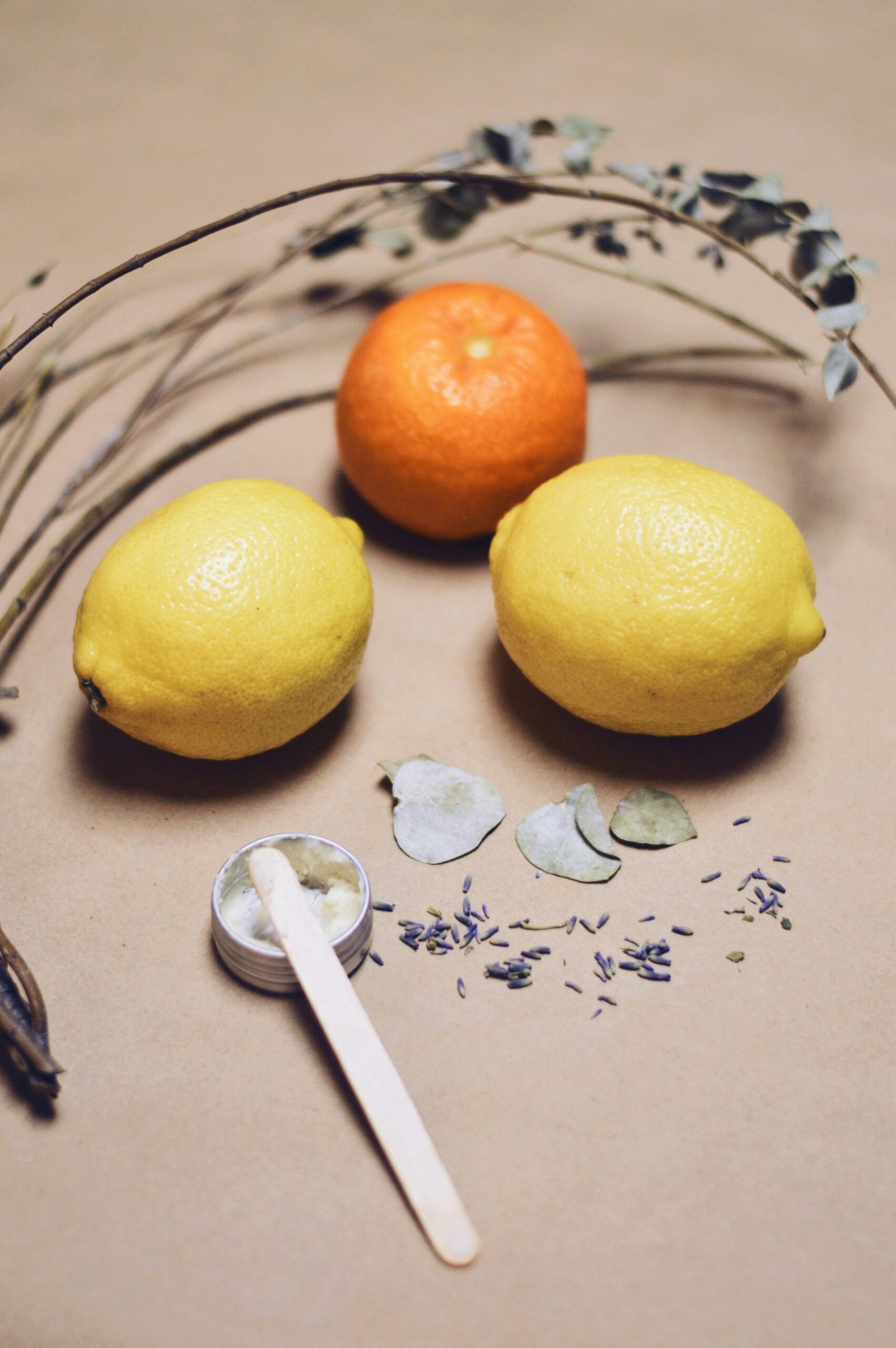“`html
Understanding the Benefits of Natural Skincare
The shift towards natural skincare remedies from commercial products is gaining momentum due to numerous advantages that benefit not only our skin but also the environment. One of the significant benefits of natural skincare is the elimination of harsh chemicals often found in commercial skincare products. Many commercial products contain synthetic ingredients, preservatives, and fragrances that can cause irritation, allergies, and long-term health issues. Opting for natural ingredients aids in reducing exposure to these potential toxins, promoting healthier skin.
Natural skincare solutions are well-suited for various skin types, mitigating risks associated with adverse reactions. Ingredients like honey offer moisturizing properties suitable for dry skin, while oatmeal serves as a gentle exfoliant for sensitive skin types. Essential oils such as tea tree and lavender provide therapeutic properties that can combat acne and calm irritation, respectively. These ingredients are versatile and effective, making them ideal for personalized skincare routines tailored to individual needs.
From an environmental perspective, natural and homemade skincare remedies contribute significantly to sustainability. Commercial skincare products often come packaged in non-recyclable materials and involve manufacturing processes that harm the environment. In contrast, natural skincare products can be made using eco-friendly ingredients and minimal packaging, thus reducing waste and pollution. This eco-conscious approach not only benefits personal health but also aids in preserving the planet.
Key natural ingredients commonly utilized in homemade skincare range from household staples to organic essentials. Honey, renowned for its humectant properties, locks in moisture and promotes skin healing. Oatmeal functions as an effective exfoliant, removing dead skin cells without causing irritation. Essential oils, derived from plants, offer a myriad of benefits—relieving stress, combatting inflammation, and providing natural fragrances. Incorporating these ingredients into daily skincare regimens can yield impressive results while fostering a healthier lifestyle.
Creating your own facial cleansers and masks at home is an excellent way to ensure you’re using natural ingredients suited to your skin type. Here’s how you can prepare a few effective DIY recipes tailored for different skin needs, along with their potential benefits and precautions.
Honey and Oatmeal Cleanser for Dry Skin
To make a nourishing cleanser for dry skin, mix two tablespoons of honey with one tablespoon of finely ground oatmeal. Honey is a natural humectant, drawing moisture into the skin, while oatmeal has soothing and anti-inflammatory properties.
Instructions: In a small bowl, combine the honey and oatmeal until you form a smooth paste. Apply the mixture to your damp face in a circular motion. Leave it on for about 5 minutes before rinsing off with lukewarm water. Pat your face dry with a clean towel.
Storage Tips: It’s best to prepare this cleanser fresh for each use to maximize the potency of honey’s antibacterial properties.
Clay Mask for Oily Skin
A clay mask can help absorb excess oil and detoxify the skin. For oily skin, bentonite clay is an excellent choice due to its oil-absorbing capabilities.
Instructions: Mix one tablespoon of bentonite clay with one tablespoon of water or apple cider vinegar. Stir until you achieve a thick paste. Apply the mask to your face, avoiding the eye area. Let it sit until it starts to dry, roughly 10-15 minutes. Rinse off thoroughly with warm water and follow up with a light moisturizer.
Storage Tips: This mask should be mixed fresh before each application to avoid the clay drying out.
Yogurt and Cucumber Mask for Sensitive Skin
This soothing mask is ideal for sensitive skin, combining the calming and cooling effects of cucumber with the gentle exfoliation of yogurt’s lactic acid.
Instructions: Grate half a cucumber and mix it with two tablespoons of plain yogurt. Apply the mixture evenly to your face and let it sit for about 10 minutes. Wash off with cool water and gently pat dry.
Storage Tips: Due to the perishable nature of yogurt and cucumber, prepare this mask just before use and discard any leftovers.
When using natural ingredients, it’s crucial to perform a patch test to ensure no allergic reactions occur. Natural does not always mean risk-free, so understanding how these ingredients interact with your skin type can help achieve the best results.
Homemade Exfoliants and Toners
Exfoliation and toning are pivotal steps in a comprehensive skincare regimen, aiding in the removal of dead skin cells and balancing the skin’s pH, respectively. Natural ingredients found in your kitchen can serve as the basis for homemade exfoliants and toners, providing an effective, budget-friendly, and gentle alternative to commercial products.
Sugar and coffee grounds are excellent exfoliants due to their coarse texture. To create a basic sugar scrub, combine one cup of granulated sugar with half a cup of coconut oil. For a coffee scrub, blend half a cup of coffee grounds with a quarter cup of olive oil. Gently massage these scrubs onto clean skin in a circular motion, focusing on areas prone to dryness. Exfoliating one to two times a week can prevent over-exfoliation, which can irritate the skin.
Toners help in restoring the skin’s natural pH balance and tightening pores. Witch hazel and lemon juice are popular natural toners. Witch hazel is known for its anti-inflammatory and antimicrobial properties. To create a witch hazel toner, simply dilute witch hazel with an equal part of distilled water. For a lemon juice toner, mix one part lemon juice with three parts water to prevent sensitivity due to the acidic nature of lemon juice. Apply these toners with a cotton pad after cleansing the skin but before moisturizing.
The benefits of incorporating these DIY products into your skincare routine are manifold. Natural exfoliants and toners are devoid of harsh chemicals, making them suitable for sensitive skin. They help in maintaining smooth, clear skin by removing impurities and dead skin cells while balancing oil production.
When using homemade exfoliants and toners, it’s important to be mindful of any potential allergies. Conduct a patch test before full application to ensure your skin doesn’t react adversely. Regular use, following proper instructions, can usher in visibly healthier, well-nourished skin.
Natural Moisturizers and Serums
Crafting your own natural moisturizers and serums can be an enriching and beneficial practice. These homemade skincare products utilize ingredients like coconut oil, shea butter, aloe vera, and essential oils, each known for their unique properties and suitability for different skin types and concerns.
For a versatile moisturizer, consider a simple recipe consisting of shea butter and coconut oil. Melt together equal parts of shea butter and coconut oil, let it cool, and whip it until it achieves a creamy consistency. This mixture is excellent for dry skin, providing deep hydration and improving the skin barrier function.
For those with oily or acne-prone skin, an aloe vera-based serum can be highly effective. Combine two tablespoons of freshly extracted aloe vera gel with a few drops of tea tree oil. Aloe vera serves to soothe and hydrate the skin, while tea tree oil has antibacterial properties that can help manage acne.
Individuals with aging or mature skin might benefit from a serum featuring rosehip oil. Mix one tablespoon of rosehip oil with a few drops of vitamin E oil. Rosehip oil is rich in essential fatty acids and antioxidants, promoting skin regeneration and improving overall skin texture.
An important aspect of using natural moisturizers and serums is the correct application technique. Apply these products to clean, slightly damp skin to enhance absorption. Gently massaging the product into the skin can also improve blood circulation and ensure even distribution. For serums, a few drops applied with a light tapping motion are generally sufficient.
Identifying the best ingredients for your skin concerns involves understanding your skin type and any specific issues you may have. For example, dry skin benefits from hydrating and emollient ingredients like shea butter and coconut oil, while oily skin often fares better with lightweight, non-comedogenic options like aloe vera and jojoba oil.
Proper storage of these natural products is crucial to maintain their efficacy. Store moisturizers and serums in airtight containers, ideally in a cool, dark place to prevent the degradation of sensitive ingredients. Refrigeration can further extend the shelf life of many homemade skincare products.
By incorporating these natural moisturizers and serums into your skincare routine, you can enjoy improved hydration, enhanced skin barrier function, and overall skin health improvement without relying on synthetic chemicals.


